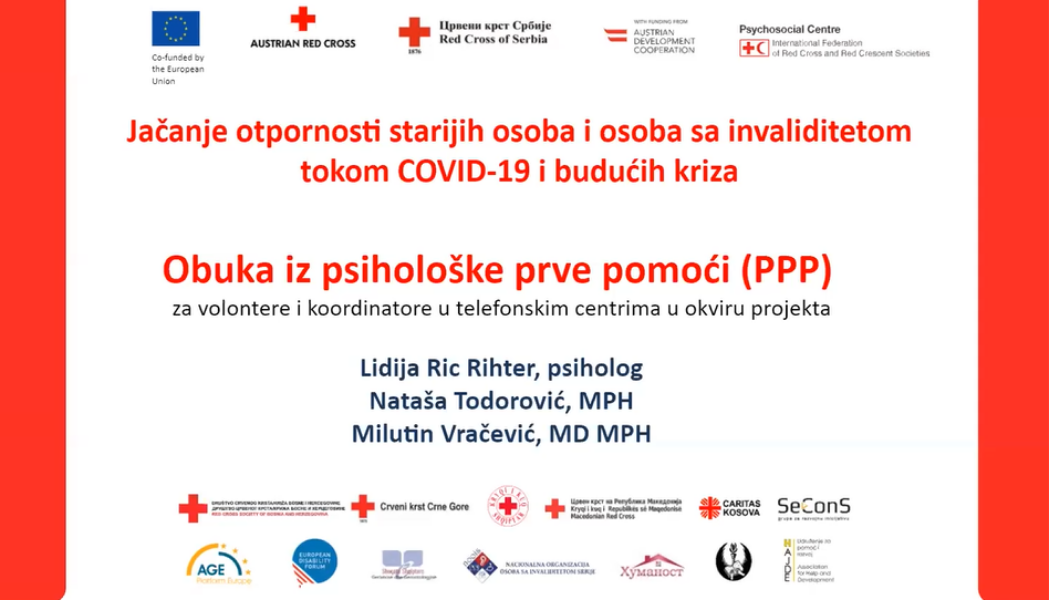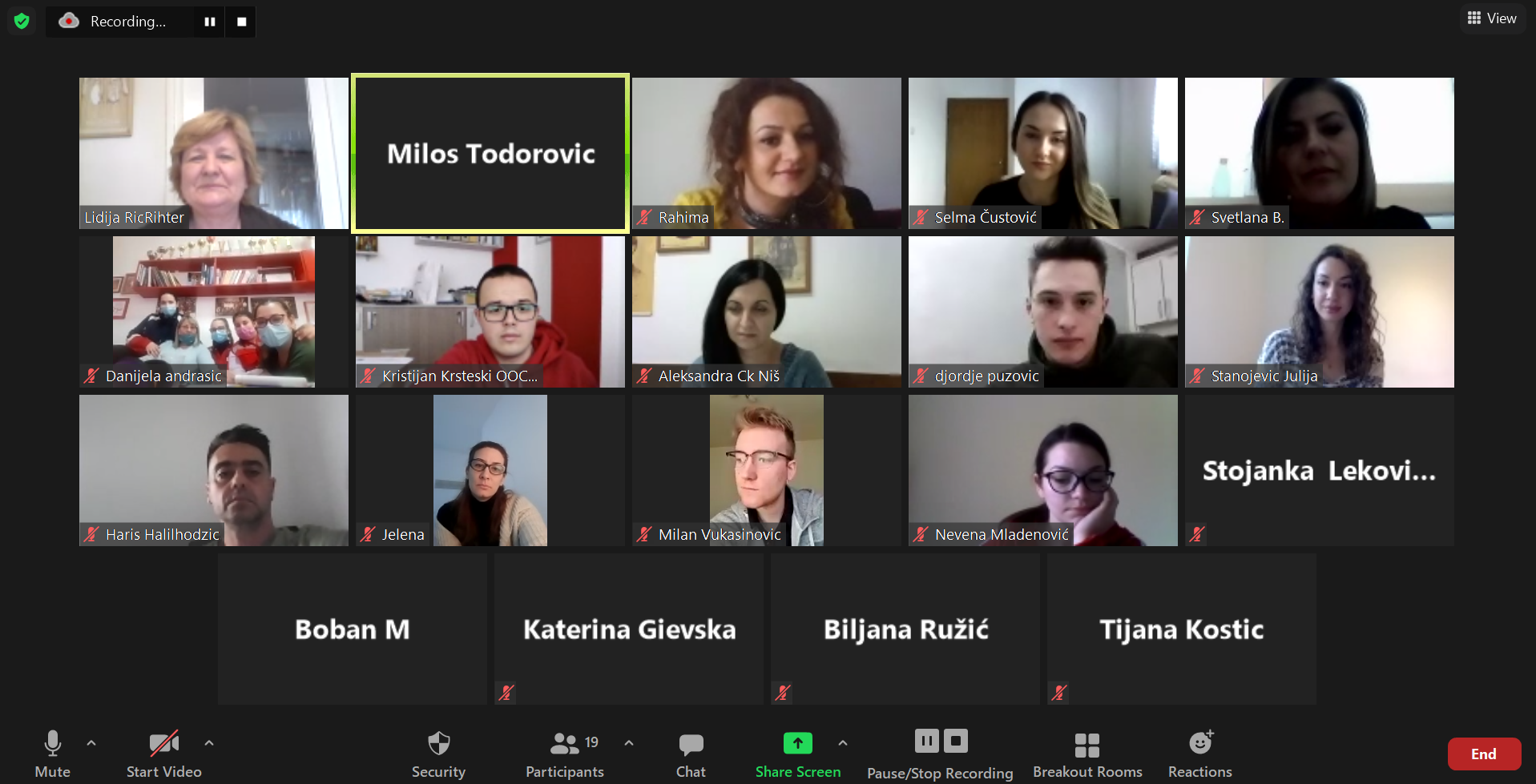Psychological first aid training for staff of telephone centres

As part of the process of education and preparation for further activities within the regional project "Strengthening the resilience of older persons and persons with disabilities during COVID-19 and future crises" on March 9 and 10, the Red Cross of Serbia organised online psychological first aid training for coordinators and volunteers of local Red Cross organizations from Kragujevac, Subotica, Nis and Cukarica, as well as for the coordinator of the NOOIS organization, who will manage open telephone lines for these two population groups.
The training was led by psychologist Lidija Ric Richter, and the project coordinators are Natasa Todorovic and Milutin Vracevic, coordinators in the Red Cross of Serbia.
This three-year project aims to increase the response capacity of civil society in the Western Balkans to the current pandemic crisis and future crises, and to place particular emphasis on mental health protection and building the resilience of older persons and persons with disabilities to meet the challenges they face: loneliness, isolation, lack of communication, all of which can lead to deterioration of their mental health.
The training included presentations, as well as interactive work in groups, and before that the participants were asked to map their previous activities in the field of mental health during the response to the pandemic. 20 persons participated in the training.
The first part of the training discussed the data on mental health of older persons and persons with disabilities and the risks for its deterioration during the COVID-19 pandemic, as well as the basic principles of Psychological First Aid that are the basis of work in these centres.
The second day of the training was created so that through practical work in groups the participants may prepare for subsequent activities related to the concrete provision of psychological first aid remotely, which will be done in 5 local communities in Serbia. In accordance with development of epidemiological situation these telephone centres will be gradually transformed to undertake direct face-to-face support, and become part of the development of the concept of healthy aging based on the World Health Organization's Decade for Healthy Aging and Healthy Lifestyles for Persons with Disabilities in Local Communities. Given that the epidemic has led to significant losses in the lives of many, loss of loved ones, social contacts, opportunities for socialization, opportunities for lifelong learning, loss of financial security, and that only those who are digitally literate can maintain some level of communication with others, an important segment of education was the part related to dealing with loss and grief, as well as ways to overcome them. Attention was also focused on the part of the work in which short films were shown that showed telephone calls of people who have a problem and ask for help, and which were made by the Psychosocial Support Reference Centre of the International Federation of Red Cross and Red Crescent Societies.
This regional project is supported by the European Union, Austrian Development Agency and the Austrian Red Cross.

